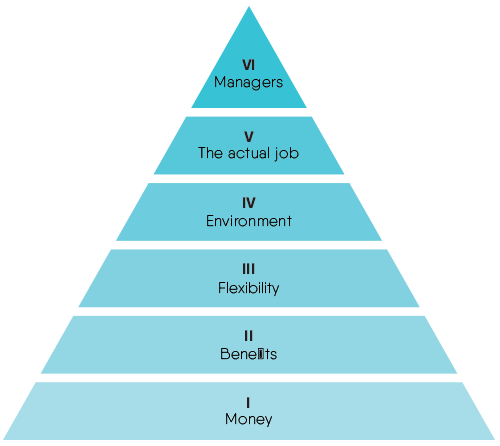I’m in love with Gen Z! It might be because I’m raising 3 Gen Zers, two in college, one on the way, but it’s also because I love how each generation is shaped by the period of time in which they are raised, and I think Gen Z, specifically, was raised in one of the most unique periods in history!
We’ve had the Millennial “differences” jammed down our throat now for a decade! When it first started, I was fascinated with the differences, now I’m just bored. I think what we learned with the Millennials was that so much of what each Generation has, is truly just based on time in life. Then we have this much smaller percentage of some stuff that truly makes each generation standout.
Gen Z was raised during the Great Recession. This is a fact, it’s not something we can discount. The generations directly before the Boomers, the Silent Generation, and the Greatest Generation, were raised during the Great Depression, this had a significant impact on how the viewed the world, and how they viewed jobs specifically. Gen Z will have some modern similarities to these generations.
You can not be in your formidable years, have the access to information that Gen Z has always had, and see your family and friends lose jobs, houses, etc. and not then have that come out in your relationship to work in some unique way. There’s been very little out about Gen Z, to this point, but recently there was a fairly substantial study done with over 25,000 Gen Zers. Here’s what it said:
– 97% of Gen Z own a Smartphone, 93% own a Laptop! Gen Z is digital natives. They are the very first digital native generation. They grew up with a smartphone in their hands before they could even communicate what they wanted or needed in a meaningful way. Gen Z will not ever work well in an environment that doesn’t use technology to solve common problems. “We have always done it this way” makes no sense to them. No in a frustrating way, but in a truly perplexed way. Kind of like how someone looks at a Caveman exhibit in a museum.
– Gen Z is very price conscious. Employers will love them because they constantly work to get lower cost of goods and are very adept at doing things on their own when they feel they can produce similar quality for a lower cost. Again, go back to what they saw growing up. They use technology for price comparison, reviews, check availability, etc. Rarely will you be able to sell Gen Z in one meeting, and without competition also being in play.
– Only 1 in 8 Gen Zs gets their information from printed materials. Good job on those printed career fair brochures! You might as well just have a big bomb fire at Corporate HQ because your printed job material is almost worthless with Gen Z. Although, they do consume information through a ton of channels including social media (79.7%) – yeah, that Twitter/IG is just a fad…TV/Video, radio and video streaming services, etc. When we go to recruit Gen Z, we have to be ready to use multiple forms of media to reach them.
– Crazy enough, Gen Z actually loves to read books, not digital. Again, generationally, Gen Z was raised during the Harry Potter days, etc. Some of the best young adult literature in history was written during their young years, and in hard economic times, a book is a fairly inexpensive entertainment option that takes up a lot of time. No wonder Gen Z is a generation of readers! 77% prefer to read a printed book, rather than digital. So, while we tend to focus employee development on online on-demand types of media, some leaders will find giving a book to Gen Z might be a real connection for them.
– Gen Z demands information. Gen Zers, for the most part, won’t demand to be the boss, but they will demand to be kept in the loop. Why? Because they’ve always been able to find out anything they wanted in seconds, so you playing the power position of keeping information from them will not go over well! When you’ve never not had information, working in a corporate culture that uses information as power, is a stifling environment to be in.
– Gen Z is the most diverse generation in American history. I will tell you my sons are somewhat confused by old people’s obsession with diversity issues. They understand America is far from perfect, but they also have grown up in a generation that is much more accepting than any generation before them, so they find ‘our’ obsession with these topics sometimes overdone. They would prefer to focus on how we are similar, then to how we are different.
By 2020 (2 years away!) Generation Z will be 40% of our workforce. The largest generation in the workforce, with Millennials being a shrinking second place. Gen Zs are not Millennials, just like Millennials are not Gen X, etc. Each is mostly similar, with some differences. Gen Z will take some getting used to for some leaders, but those who embrace their uniqueness will truly get rewarded!

 Level I – Money – cash!
Level I – Money – cash!